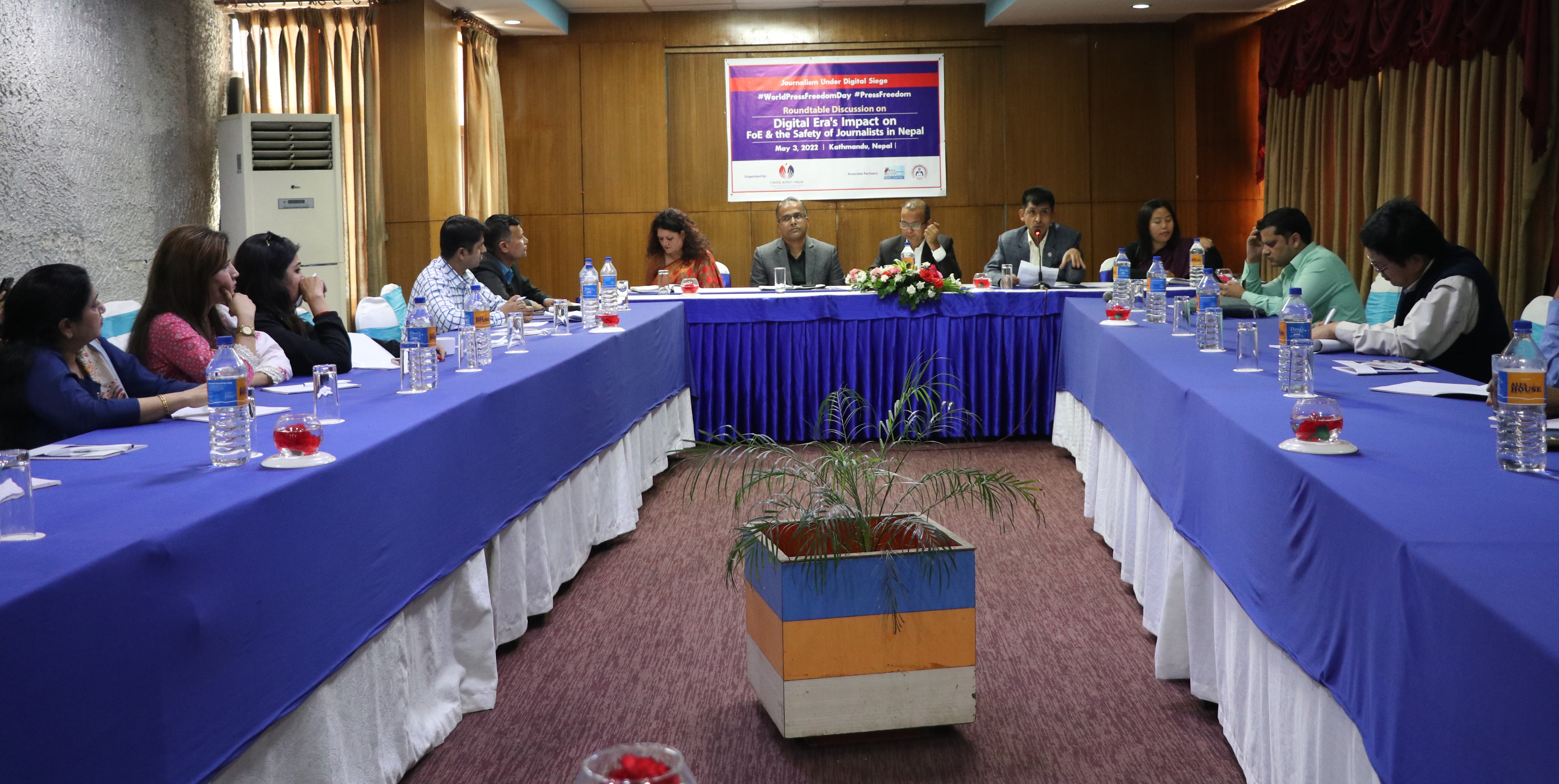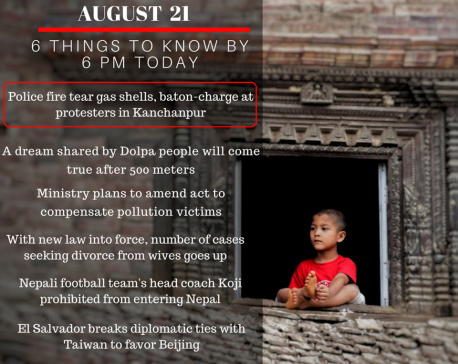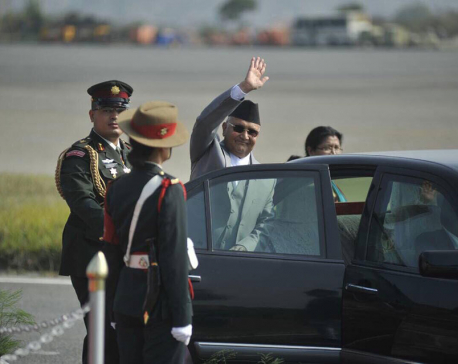
OR
Govt urged to stand by commitments on press freedom as Law Minister asks media to be accountable
Published On: May 4, 2022 07:40 AM NPT By: Republica | @RepublicaNepal

KATHMANDU, May 3: While expressing worry that the conflict era cases of crimes against journalists in Nepal remain unsolved, experts have called on the government to abide by its press freedom commitment.
Addressing a roundtable discussion organized by Media Action Nepal (MAN) in the capital on Tuesday on the occasion of World Press Freedom Day, they also reminded that the government should logically conclude Nepal's transitional justice in line with Nepal's international obligations and Supreme Court's order and precedents.
Chairperson of MAN Laxman Datt Pant, who also co-chairs the Media Freedom Coalition-Consultative Network (MFC-CN), said that the government must be able to abide by its commitment to press freedom. Stating that Nepal's peace process remains incomplete even as the armed insurgency came to an end in 2006, he also pointed out the need to conclude Nepal’s transitional justice in line with Nepal’s international obligations and Supreme Court’s orders and precedents.
Also speaking on the occasion, Minister for Law, Justice and Parliamentary Affairs Govinda Prasad Sharma (Koirala) said that the government is committed to preserving freedom of expression and will neither introduce nor enact any laws aimed at stifling press freedom. “The present government strongly believes in the freedom of the press and does not seek to restrict it,” Sharma said, “The media should be accountable, not controlled.”
Minister Sharma also expressed the government’s willingness to sit and discuss media laws with the relevant stakeholders and urged everyone to come together to review the laws, both existing and in the pipeline, in line with the constitutional mandate.
“But the problem is that the parliament has not been able to function due to the ongoing obstruction by the opposition,” Sharma said. “This has affected the government’s ability to work as desired.” Sharma also worried that the digital age had raised safety challenges for both journalists and news sources and stressed the need to take steps to address these challenges.
MAN Chairperson Pant said that while the press freedom situation was better in Nepal than our South Asian countries, it was still far from perfect and we needed to conform to the international instruments to which Nepal is a state party to. He also called out media organizations like the Press Council Nepal and the Federation of Nepali Journalists for going beyond their mandate and carrying out populist activities.
Furthermore, Pant questioned the organizations’ involvement in the state apparatus and asked how they could claim to be unaware about the various anti-freedom of speech laws introduced by the government while sitting in the consultative and recommendation-giving bodies.
This year, the World Press Freedom Day was marked with the theme ‘Journalism under digital siege.’ Participants in Friday’s discussion, which included Gogan Bahadur Hamal, Director general of the Department of Information and Broadcasting; Jhabidra Bhusal, chief officer of Press Council Nepal; Dr. Kundan Aryal, associate professor at the Central Department of Journalism at Tribhuvan University and officials from other media and digital rights organizations, also focused on the topic.
Press Council’s Bhusal shared that our laws and policies had not kept pace with the advancements in technology and reminded everyone that freedom of expression was not absolute and more needed to be done to combat misuse of new media.
Meanwhile, Hamal said that technological progress would not stop for anyone and requested the media to use it positively. He also reiterated Minister Sharma’s point and said that the government was ready to work with all to strengthen press freedom.
Dr. Aryal along with experts Taranath Dahal of Freedom Forum; Prabesh Subedi, president of Digital Media Foundation; Babita Basnet, coordinator of Nepal Internet Freedom Working Group, Santosh Sigdel, chairperson of Digital Rights Nepal, Hari Sharan Lamichhane, Chief News Editor of the state owned Radio Nepal, Rajan Pokhrel, Editor of The Himalayan Times, Kamal Dev Bhattarai, Deputy Editor of Annapurna Express talked about how internet had pushed traditional media into an existential crisis, caused loss of credibility and made surveillance easy. They also expressed concern about the lack of media literacy and digital literacy among the Nepali public
You May Like This

Federalism: learning by doing
Issues have emerged regarding effective implementation of federalism. But there is a long way to go and these issues can... Read More...

Aug 21: 6 things to know by 6 PM
Your daily dose of missed important news of the day. ... Read More...

What Nepal needs is India's friendship and support for growth: Nepal PM Oli
In an exclusive interview to The Hindu, Mr. Oli says the bitterness of past relations have been put behind them,... Read More...






Just In
- NRB introduces cautiously flexible measures to address ongoing slowdown in various economic sectors
- Forced Covid-19 cremations: is it too late for redemption?
- NRB to provide collateral-free loans to foreign employment seekers
- NEB to publish Grade 12 results next week
- Body handover begins; Relatives remain dissatisfied with insurance, compensation amount
- NC defers its plan to join Koshi govt
- NRB to review microfinance loan interest rate
- 134 dead in floods and landslides since onset of monsoon this year











Leave A Comment